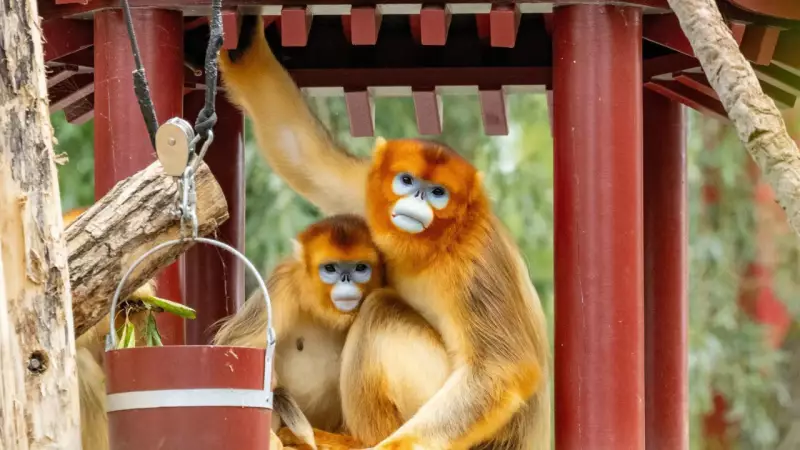
Move over pandas, there's a new furry diplomat in town! China has begun deploying its stunning golden snub-nosed monkeys to European zoos, signaling what experts believe could be the next chapter in the nation's famous animal diplomacy playbook.
The New Face of Chinese Soft Power
These magnificent primates, with their striking blue faces and golden-orange fur, have made their European debut in what appears to be a strategic shift from the beloved panda diplomacy that has characterized China's international relations for decades.
The golden monkeys' arrival marks a significant moment in wildlife diplomacy, potentially offering a fresh approach to strengthening international ties while highlighting China's conservation efforts.
Why Golden Monkeys Could Be the Perfect Successors
Several factors make these rare primates ideal candidates for diplomatic missions:
- Extreme rarity - With only about 20,000 remaining in the wild, their presence generates immense excitement
- Visual appeal - Their stunning golden coats and unique facial features captivate visitors
- Cultural significance - Deeply rooted in Chinese mythology and art
- Conservation story - Their endangered status highlights environmental protection efforts
European Zoos Embrace the Golden Ambassadors
The initial European hosts for these special envoys have reported unprecedented visitor interest. "The public response has been phenomenal," reports one zoo director. "People are absolutely mesmerized by these beautiful creatures."
This enthusiastic reception suggests that golden monkey diplomacy could prove equally effective, if not more so, than the panda programs that have delighted international audiences for generations.
Conservation Benefits Beyond Politics
Beyond the diplomatic advantages, this initiative offers substantial conservation benefits:
- International breeding programs help protect genetic diversity
- Increased funding for wild population protection in China
- Global awareness about habitat preservation needs
- Research collaboration between international scientists
The program represents a win-win scenario - advancing both diplomatic relations and wildlife conservation simultaneously.
What This Means for Future International Relations
As China continues to expand its global influence, animal diplomacy remains one of its most effective soft power tools. The golden monkey initiative demonstrates Beijing's evolving approach to international engagement, combining cultural heritage with environmental stewardship.
While pandas will always hold a special place in diplomatic history, these golden-haired ambassadors appear poised to write the next chapter in China's unique approach to building international bridges through wildlife conservation.





